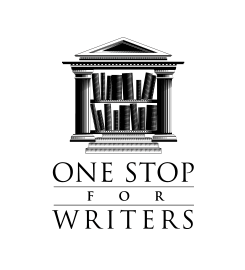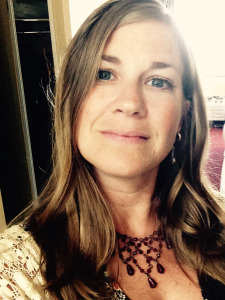Angela Ackerman's Blog: Writers Helping Writers, page 143
September 23, 2015
Voice: The Soul of your Story
One of my favorite parts of writing conferences is the first-page critique session—when attendees anonymously submit their first pages and a panel of editors, agents, and industry pros critique them for the whole group. It’s interesting, because the panelists always complain about the same things, and one of the common fails on ailing first pages is the voice.
If the voice on a first page is boring or flat or inconsistent, you may not be able to put your finger on exactly what’s wrong with it, but you know something’s wrong. Likewise, when the voice is on, you sense it immediately. It resonates. So if you’re wanting to write a book that people will want to read, it’s hugely important to get the voice right.
That’s why, despite this topic having been discussed already around the blogosphere, we’re going to talk about it again. It’s that important. PK Hrezo is here today to share some thoughts and an exercise on how to write voice well. Thanks, PK!

Courtesy: asboluv @ Creative Commons
Soul. It’s a word applied to many different media. For just a moment, let’s consider it from a musical standpoint. Stevie Wonder. Aretha Franklin. Marvin Gaye. Not just anyone can sing and play this kind of music successfully; a certain je ne sais quoi is required in bringing down the house and moving people to their very souls.
Is it really any different when it comes to books?
If the structure of a story is the bones and the characters and plot are the meat, then the voice most certainly is the soul. Every reader loves a good plot and riveting characters, and many books have these elements, but with so many to choose from, what makes us select the books we do?
For me it’s simple: if you want me to get past the first page of your book, the voice of the story must grab me. It must be authentic, unique, memorable. It should feel like a real person. So what ingredients make up that magical concoction of a compelling voice?

Courtesy: Matthias Ripp @ CC
Word choice. Cadence. Rhythm. It’s where the real writing comes in, paired with crafty prose and flipped clichés. It requires careful thought and consideration, both when the narrator is a main character, as well as when the story is told in third person.
For newer writers, it can be hard to decipher what those editors and reviewers are saying when they mention a weak or bland voice. It’s like not being able to see the book for the words. (See how I flipped that forest-for-the-trees cliché??)
If you’re struggling with the concept of voice, give the following exercise a try:
Let’s say we send three very different people to the same party, asking all to observe the venue and guests for thirty minutes before reporting back on everything they noticed. Let’s say one of those people is an elderly lady who uses a walker, is blind in one eye, and hasn’t been out of her house in a week. How would she describe what she sees and feels? What words would she choose? What are the things she’d notice?
What if one of the guests was a young dad who’d recently lost his wife to cancer and this was the first time he’d been out since her death? How would his observations be different from the old woman? How would he describe it, in his own overwhelmed, brink-of-depression terms?
What if one of those people was an eighteen-year-old girl who was just elected homecoming queen and this was her third party of the night? What words would she use to make her report relative to her world?
This activity exemplifies the importance of character when it comes to voice. What she notices (and doesn’t notice), the words she uses to describe those things, the cadence and rhythm of her speech (is it lilting, rambling, stuttering, or staccato?)—all of these things go together to define her voice and make it uniquely hers.
Now take the exercise a step further. Make your main character one of these guests who must observe the party and report back. Now it’s your villain’s turn. Now the love interest…Not only will this activity get you in touch with who your characters are at their core, but it will distinguish each of their unique voices and help you decide which one would be the most compelling and/or fitting for the story you want to tell. The individual voices that result can be the difference in an un-put-downable story and one that sounds like all the rest.
When I’m drafting, I work fast. I get that story down and focus on the rise and fall of emotion throughout the plot. But I know that a compelling narrator voice is vital, so during my first and second rounds of edits, I focus on how I can strengthen the narrator (and character) voice. Are my word choices dull? If the sentence or paragraph evokes no emotion in me, then the answer is probably yes. How can I flip my current word choices to add flair to my character and refine her voice in the story?
Example from an old unpublished manuscript:
It’s not crowded, but the noise of the arcade and music makes it seem busy. Glancing around, I notice some of my old video game faves. I haven’t been inside here in ages—grew out of it, I guess. Now it seems kind of fun, though. Reminds me of a time when nothing else mattered—when scoring high at Zombie Slayer ruled the weekend. Back when my brother Jake was still at home, and when Mom and I got along. I realize it now. Something about this place comforts me.
Now, using the same scenario, let’s tweak the voice:
The place is a ghost town, only the whirrs and beeps of the player-starved arcades giving it any life. Glancing around, I notice my faithful old time-killers and a flash of nostalgia sweeps through me. I haven’t been inside this pizza joint in moons—not since middle school, anyway. It reminds me of a time when nothing else mattered, a time when scoring high at Zombie Slayer was the highest honor of the weekend. Of a time when my big brother was still at home, and when Mom and I still got along.
Which narrator would you rather keep reading? Both tell the same story, but the second one gives more insight into who the character is, and it’s more entertaining.
In closing, I should add that, like a fine wine, our writer’s ear for voice matures over time. If you’re just starting out, you may not notice anything missing in your story, while an agent or editor or reviewer may say that the voice was “flat” or “inconsistent.” This just means there’s room for growth in this area.
Ask around for suggestions on books with compelling narrator voices. Read them, focusing on the author’s word choice, cadence, and rhythm. Once you read a story with a strong voice, you’ll know it; recognize the techniques, practice them yourself, and the knowledge will change your work for the better.
Thanks to Angela and Becca for having me here today!
Thanks for being here, PK! Voice is honestly one of those things that can make or break a story, and the best way I’ve found to improve in this area myself is to identify books that have a strong voice and study them. A few of my personal favorites? Chime (Franny Billingsley), The Wicked and the Just (J. Anderson Coats), and Above (Leah Bobet). What books stand out to you as have strong and unique voices?
PK Hrezo is the author of the Butterman (Time) Travel, Inc. series. She is also a blogger and crafter. Follow her down the rabbithole at her website.
The post Voice: The Soul of your Story appeared first on WRITERS HELPING WRITERS™.
September 19, 2015
Emotional Wound Thesaurus: A Sibling’s Betrayal
When you’re writing a character, it’s important to know why she is the way she is. Knowing her backstory is important to achieving this end, and one of the most impactful pieces of a character’s backstory is her emotional wound. This negative experience from the past is so intense that a character will go to great lengths to avoid experiencing that kind of pain and negative emotion again. As a result, certain behaviors, beliefs, and character traits will emerge.
 Characters, like real people, are unique, and will respond to wounding events differently. The vast array of possible emotional wounds combined with each character’s personality gives you many options in terms of how your character will turn out. With the right amount of exploration, you should be able to come up with a character whose past appropriately affects her present, resulting in a realistic character that will ring true with readers. Understanding what wounds a protagonist bears will also help you plot out her arc, creating a compelling journey of change that will satisfy readers.
Characters, like real people, are unique, and will respond to wounding events differently. The vast array of possible emotional wounds combined with each character’s personality gives you many options in terms of how your character will turn out. With the right amount of exploration, you should be able to come up with a character whose past appropriately affects her present, resulting in a realistic character that will ring true with readers. Understanding what wounds a protagonist bears will also help you plot out her arc, creating a compelling journey of change that will satisfy readers.
NOTE: We realize that sometimes a wound we profile may have personal meaning, stirring up the past for some of our readers. It is not our intent to create emotional turmoil. Please know that we research each wounding topic carefully to treat it with the utmost respect.
A SIBLING’S BETRAYAL
Examples:
Spilling a closely guarded secret to parents, a spouse or one’s children
Starting false rumors or perpetuating existing ones
Exposing something shameful or embarrassing to others (like drug use, deviant behavior, committing a fraudulent act, etc.)
Going to the authorities to report a brother or sister’s crime
Taking sides with one’s rivals out of spite or to gain some sort of advantage
Staging an intervention (a drug addiction situation, confronting a hoarder, etc.)
Competing not because it is important, but to keep one from winning
Openly acting inappropriate around one’s husband or wife but denying it
Engaging in an affair with a one’s partner
Misrepresenting the truth to gain an advantage
Turning someone against oneself (family members, friends, co-workers, a love interest. etc.)
Basic Needs Often Compromised By This Wound: physiological needs, safety and security, love and belonging, esteem and recognition, self-actualization
False Beliefs That May Be Embraced As a Result of This Wound:
If I can’t trust my family, who can I trust?
I need to distance myself from family
My private life is not safe to share with anyone, especially family
Whatever I have, another will always take it
My sibling only wants to hold me back or ruin my life
My sibling likes to hurt me however he/she can
Blood is no thicker than water
What’s the point of trying to achieve anything? He/she always tries to one-up
Even my family doesn’t respect me
I am gullible and weak
My life would be better as an only child
Positive Attributes That May Result: cautious, disciplined, discreet, empathetic, focused, independent, industrious, introverted, kind, mature, observant, pensive, persistent, private, proactive, proper, simple, resourceful, tolerant
Negative Traits That May Result: abrasive, catty, controlling, cruel, defensive, dishonest, evasive, hostile, hypocritical, impulsive, insecure, judgmental, martyr, nervous, oversensitive, pessimistic, rebellious, reckless, self-destructive, suspicious, uncommunicative, vindictive, withdrawn
Resulting Fears:
Fear of vulnerability
Fear of failure
Fear of achievement
Fear of one’s secrets being exposed
Fear of relationships
Fear of trusting the wrong person
Possible Habits That May Emerge:
Avoiding family members, especially one’s sibling
Refusing to speak to or about one’s sibling
Making excuses to get out of social engagements where one’s sibling is present
Having a distanced relationship with nieces and nephews
Cutting the individual out of one’s life (online and off) and taking care about all personal information shared online so other relatives don’t “report back” to one’s sibling
Growing quiet or irritable when forced by circumstances to be around one’s sibling
Lying to one’s sibling when the truth matters to them
Difficulty sharing personal desires, goals or feelings with others
developing trust issues, especially in the area of betrayal
Withdrawing from one’s life; developing depression or anxiety
Forcing family members and friends to take sides
Being unable to let go, discussing the event often with others
Self-harming to deal with the pain
Increased drinking or self-medicating in other ways
Jumping to conclusions and seeing the worst case scenario when it involves one’s sibling
Looking for opportunities for revenge in some form
Needing to be the best at everything to “prove” one’s self-worth
Carrying anger over the betrayal even if the actions were justified (such as going behind one’s back to seek help for a drug habit rather than keeping the secret)
TIP: If you need help understanding the impact of these factors, please read our introductory post on the Emotional Wound Thesaurus. For our current list of Emotional Wound Entries, go here.
For other Descriptive Thesaurus Collections, go here.
Image: Macunin @ Pixabay
The post Emotional Wound Thesaurus: A Sibling’s Betrayal appeared first on WRITERS HELPING WRITERS™.
September 15, 2015
Critiques 4 U, September Edition
Hello, friends! Guess what? I’m all moved from Florida to New York. We’re in a rental house for now while our house is being finished, so there are still boxes everywhere and half our stuff is in the garage. But I’m so excited to be here. It’s September, and the weather is beautiful; my kids are actually playing outside without having to be bribed with popsicles. The deer like to wander across our yard to eat the apples that are falling off the tree across the street. SIGH. So happy!
 The move itself was crazy, and since my kids got out of school in May and didn’t start up here until last week, it was the longest summer of all of our lives. So I hope you’ll understand why I didn’t run the critique contest last month :). But everything’s good now, and I’m ready to get back to the fun stuff. Because it’s been awhile, let me just restate the rules…
The move itself was crazy, and since my kids got out of school in May and didn’t start up here until last week, it was the longest summer of all of our lives. So I hope you’ll understand why I didn’t run the critique contest last month :). But everything’s good now, and I’m ready to get back to the fun stuff. Because it’s been awhile, let me just restate the rules…
If you’re working on a first page and would like some objective feedback, leave a comment that includes:
1) your email address. Some of you have expressed concern about making your email address public; if you’re sure that the email address associated with your WordPress account is correct, you don’t have to include it here. But if you do win and I’m unable to contact you through that email address, I’ll have to choose an alternate winner.
2) your story’s genre (no erotica, please)
3) the intended audience
~ONLY ENTRIES THAT FOLLOW THESE INSTRUCTIONS WILL BE CONSIDERED~
Three commenters’ names will be randomly drawn and posted tomorrow. If you win, you can email me your first page and I’ll offer my feedback. Best of luck!
And just a reminder that we’re less than a month away from the One Stop for Writers release. If you’d like more information about this research tool that includes all of our thesaurus content (plus more awesome stuff) in one convenient place, sign up for our newsletter!
The post Critiques 4 U, September Edition appeared first on WRITERS HELPING WRITERS™.
September 10, 2015
One Stop Adventures: Learning To Collaborate As A Team
 It is hard to believe, but One Stop For Writers is only a month away from release! As such, I thought I’d tackle the team aspect of getting a giant project off the ground, seeing as we had a great post recently on how authors can collaborate on writing a novel. Many of the same factors are at work, regardless of the project.
It is hard to believe, but One Stop For Writers is only a month away from release! As such, I thought I’d tackle the team aspect of getting a giant project off the ground, seeing as we had a great post recently on how authors can collaborate on writing a novel. Many of the same factors are at work, regardless of the project.
Understanding and respecting each person’s skill set, communication style and expertise is really critical for working together, because no one person can do it all when it comes to a big project. (Or if they can, quality and efficiency is sacrificed.) So for us, we needed to suss out who was good at what, and learn to trust judgement, let go of ownership, and support one another as we all took on different roles.
COMMUNICATION
Becca and I already work together well, which is a real blessing. But it also created some challenges, because we are used to communicating and doing things a certain way. When you add a third to the mix, some of these methods and styles don’t fit, and so a person has to be willing to adapt. Case in point: Becca and I communicate a lot, discussing everything upfront so we problem solve and make sure we’re on the same page. However, too much communication creates a lot of extra reading for Lee, who is task-focused. So we needed to learn how to be more economical so we didn’t drown him in email.
LEARNING FLEXIBILITY
 Because Becca and I plan extensively, once we decide on a path, we usually stick to it. This has worked very well with our books and joint business planning, but with software, we quickly saw adaptability is just as important, especially when you are working with a creative-focused developer. Lee would come up with functionality ideas that would trigger more content ideas from us, and we would have to adjust the plan. This led to some great new implementations.
Because Becca and I plan extensively, once we decide on a path, we usually stick to it. This has worked very well with our books and joint business planning, but with software, we quickly saw adaptability is just as important, especially when you are working with a creative-focused developer. Lee would come up with functionality ideas that would trigger more content ideas from us, and we would have to adjust the plan. This led to some great new implementations.
However it created the challenge of sticking to our timeline and core tasks. Eventually we had to turn off the idea tap and stick to what we had in the works, saving other ideas for later updates. As a result, we also had to push out our timeline (a good thing, as the first one was far too optimistic, and impossible to meet).
BATTLE PLANS: ASSIGNING GENERALS
Dividing and conquering became ultra important. Lee, naturally, took on everything technical, both from a software build perspective as well as a technical operations standpoint. He researched and set up our commerce system, interfaced with the site designer and set up the communication system within One Stop. He also is working with the beta testers to test and fix everything that comes up, another huge part of any software build. (And speaking of, thank you beta testers–we love you so much!)
Becca (bless her) took on the business end of things, namely getting all the paperwork in order to form a new company where the parties all lived in different countries (not easy!), working with a lawyer to create contracts and file for trademarks, she set up bank accounts, and handles our accounting. All this in addition to creating new entries, adapting and formatting old ones, and doing the final pass editing for the site (a HUGE job).
I focused on new content generation, building most of the tools and generators, helped to expand old content and write page content, create auto communications, and handled anything marketing and promotion that wasn’t technical in nature, including building and managing social media platforms, newsletters, launch planning and crowd sourcing.
WORKING TOGETHER ON A SCHEDULE
 We filled in to help one another as well so we could meet individual deadlines or assist during busier times. Becca took on managing the explainer video we’re having built, and Lee is taking on the tutorial video, two very important pieces of the puzzle. And we all collaborated to get our branding in place.
We filled in to help one another as well so we could meet individual deadlines or assist during busier times. Becca took on managing the explainer video we’re having built, and Lee is taking on the tutorial video, two very important pieces of the puzzle. And we all collaborated to get our branding in place.
One of the big challenges for our collaboration is time zones. Becca (in Florida USA), is two hours ahead of me (in Alberta, Canada) which isn’t too bad, but Lee (in Sydney, Australia) is a whopping sixteen hours ahead. When we needed to all discuss something using Skype, we only had a small window to do so. Sometimes decisions and feedback would suffer delays. Becca and I both tried to adjust our working hours a bit to include evenings so we could work though things in real time with Lee.
FINDING A HUB: HAVE YOU HEARD OF FREEDCAMP?
 Luckily as well, Lee set us up with a site called Freedcamp, which became our hub for communication, file sharing and collaboration. It’s a great site for projects like these, allowing for you to set milestones and tasks with due dates assigned to specific people. I highly recommend it if you need a home base for group projects!
Luckily as well, Lee set us up with a site called Freedcamp, which became our hub for communication, file sharing and collaboration. It’s a great site for projects like these, allowing for you to set milestones and tasks with due dates assigned to specific people. I highly recommend it if you need a home base for group projects!
All in all, I am thrilled at how well we work together. Our personality traits seem to bring out the best in each other, and create a check and balance system. Once again, I feel like the universe seems to be on our side, and the synergy between Lee, Becca and I makes us all very excited for whatever the future holds.
If you have any questions about how to collaborate with your own team, I am happy to answer them!
HEADS UP!
Interested in getting an early look at One Stop For Writers? I’ve shared quite a few screenshots of the site in this latest issue of our newsletter. 
September 9, 2015
You vs. Yourself: Defeating the Self-Doubt Slump
It’s September, y’all! That means the kids are back in school and many of us have a little more time to write. NaNo is coming, which means many of you are gearing up to write that next novel. But sometimes, amidst the excitement of a new project and a new season, worries creep in and threaten to steal our joy. Can I do this? What makes me think I’m qualified? Will I have the time? What if I fail? No one wants to be derailed by self-doubt, so Jordan Holman is here to share some helpful thoughts on how to overcome those negative thoughts and return to positivity.

Courtesy: Abhi @ Creative Commons
As a writer, I know that we all have those tiny moments of self-doubt when it comes to our work, but what happens when those tiny moments turn into full-on negative thinking? I’m currently still working on my first novel and, at first, I found myself sporadically writing and then scrapping everything. I went through this process over and over until I almost got to the point where I thought I should just stop writing. Then, one day I got on Pinterest and saw something interesting. I saw this pin that talked about how Veronica Roth wrote a bestselling book before she even graduated college! That was something inspiring to me and it told me that if she could do it, then so could I. Self-doubt is something that not just every writer, but every person, struggles with. So when it comes to your writing, here are some tips to help get you out of your rut and back on track.
Give Yourself a Deadline
A major fear that has crossed all of our minds is that we can’t do it and it’s too big of a mountain to climb. I know it has crossed my mind more than a time or two. Giving yourself a deadline for your project is a way of keeping you on track. That way you can write as little or as much as you want to everyday. You can break down your big project as you build your confidence. Even if you write 500 words a day, that will help break down the mountain of work so it’s not so daunting.
Make Yourself Write
Making yourself write may not seem like the best way to go, but you don’t have to work on your project all of the time. During the summer, I wrote short stories, alternate endings to books—anything that kept me writing. Working on different projects refreshes your mind and opens it up to new ideas that you may not have considered before.
Find the good in your work
Not all of your work is going to be perfect. In the past, I’ve come up with an idea that I loved, then two weeks later, I hated myself for even thinking it up. It’s okay to realize that some ideas may not be right for some stories, but it’s also okay to find the good in your ideas.
Make an outline
A common fear for writers is not knowing where the story is going; that can become an overwhelming thought. If this is a struggle for you, an outline can make the project more manageable. For helpful tips on creating an outline, check out these posts at She’s Novel and Now Novel.
Get Inspired!
Along with other art forms, writing requires creativity. It is an outlet that allows a person to express their ideas and ultimately themselves. To get inspired, try reading, watching a movie, or exploring your neighborhood. If you’re having trouble finding inspiration where you live, then take a trip on Pinterest. It has a lot of cool ideas you can try out.
Believe in Yourself
Cliché, I know, but it’s true. Like I said before, I used to think that I should give up writing. I thought that my work wasn’t good enough for other people to read. Once I surrounded myself with people who believed in my abilities, that led to me believing in myself. The change didn’t take place overnight; I actively worked on my confidence by submitting stories for contests, blogging to get more practice, and enlisting others to read my story. If you believe in yourself and your ability to learn and grow, then you’ll be able to improve your craft. You’ll see the improvements in your writing and will gain confidence in your ability to finish that project and make it awesome.
I know that self doubt is a struggle for a lot of first-time novelists. However, I believe that these struggles that we endure make us not only better writers, but better people. Your literary journey will be full of ups and downs, but if you persevere, you’ll get to the pot of gold, the heroic rescue, or whatever else awaits at the end of your story.
Jordan Holman is a College Junior who is currently working on her first novel. She studies Media Industries with minors in Communication Studies and English. She is from St. Louis, MO but wants to attend NYU to obtain a Masters in Publishing.
The post You vs. Yourself: Defeating the Self-Doubt Slump appeared first on WRITERS HELPING WRITERS™.
September 5, 2015
Emotional Wound Thesaurus Entry: Growing up in the Shadow of a Successful Sibling
When you’re writing a character, it’s important to know why she is the way she is. Knowing her backstory is important to achieving this end, and one of the most impactful pieces of a character’s backstory is her emotional wound. This negative experience from the past is so intense that a character will go to great lengths to avoid experiencing that kind of pain and negative emotion again. As a result, certain behaviors, beliefs, and character traits will emerge.
Characters, like real people, are unique, and will respond to wounding events differently. The vast array of possible emotional wounds combined with each character’s personality gives you many options in terms of how your character will turn out. With the right amount of exploration, you should be able to come up with a character whose past appropriately affects her present, resulting in a realistic character that will ring true with readers. Understanding what wounds a protagonist bears will also help you plot out her arc, creating a compelling journey of change that will satisfy readers.
NOTE: We realize that sometimes a wound we profile may have personal meaning, stirring up the past for some of our readers. It is not our intent to create emotional turmoil. Please know that we research each wounding topic carefully to treat it with the utmost respect.

Photo Courtesy: marvelousRoland @ CC
Examples: growing up with a sibling who
excels at a sport
is gifted in the arts
is of genius intelligence
excels academically
is a celebrity
is a prodigy
is extremely popular or well-liked
is incredibly beautiful or handsome
excels at pretty much everything he/she does
Basic Needs Often Compromised By This Wound: love and belonging, esteem and recognition, self-actualization
False Beliefs That May Be Embraced As a Result of This Wound:
I’m ugly/stupid/clumsy/etc.
I’m not good at anything.
I will never be able to distinguish myself.
I’ll always be in his/her shadow.
I have nothing to offer.
I can’t compete with him/her so it’s pointless to even try.
People will always be more interested in him/her than in me.
He/she is better than me.
Positive Attributes That May Result: ambitious, charming, courteous, disciplined, empathetic, flirtatious, imaginative, independent, pensive, persistent, private, quirky, responsible, studious, supportive
Negative Traits That May Result: catty, childish, cynical, devious, frivolous, humorless, insecure, irrational, lazy, needy, oversensitive, rebellious, resentful, temperamental, timid, vindictive, withdrawn
Resulting Fears:
Fear of never distinguishing oneself
Fear of inadequacy
Fear of failure
Fear of parents loving a sibling more than oneself
Possible Habits That May Emerge:
Pursuing an area of interest other than the one in which a sibling excels
Being driven to succeed in a different area
Having low expectations for oneself; underachieving
Not seeking to distinguish oneself in any area
Becoming needy out of a desire to gain affection
Adopting negative attention-seeking behaviors (being rebellious, acting out in school, fighting, abusing drugs or alcohol, etc.)
Becoming devious or dishonest so as to appear more successful than one actually is
Undermining one’s sibling as a way to cause him/her to lose favor with others
Rejecting one’s sibling as a peer; choosing friends who are part of an entirely different peer group
Becoming subservient to one’s sibling; losing one’s sense of personal identity
Becoming a people-pleaser
Withdrawing from others
TIP: If you need help understanding the impact of these factors, please read our introductory post on the Emotional Wound Thesaurus. For our current list of Emotional Wound Entries, go here.
For other Descriptive Thesaurus Collections, go here.
The post Emotional Wound Thesaurus Entry: Growing up in the Shadow of a Successful Sibling appeared first on WRITERS HELPING WRITERS™.
Emotional Thesaurus Entry: Growing up in the Shadow of a Successful Sibling
When you’re writing a character, it’s important to know why she is the way she is. Knowing her backstory is important to achieving this end, and one of the most impactful pieces of a character’s backstory is her emotional wound. This negative experience from the past is so intense that a character will go to great lengths to avoid experiencing that kind of pain and negative emotion again. As a result, certain behaviors, beliefs, and character traits will emerge.
Characters, like real people, are unique, and will respond to wounding events differently. The vast array of possible emotional wounds combined with each character’s personality gives you many options in terms of how your character will turn out. With the right amount of exploration, you should be able to come up with a character whose past appropriately affects her present, resulting in a realistic character that will ring true with readers. Understanding what wounds a protagonist bears will also help you plot out her arc, creating a compelling journey of change that will satisfy readers.
NOTE: We realize that sometimes a wound we profile may have personal meaning, stirring up the past for some of our readers. It is not our intent to create emotional turmoil. Please know that we research each wounding topic carefully to treat it with the utmost respect.

Photo Courtesy: marvelousRoland @ CC
Examples: growing up with a sibling who
excels at a sport
is gifted in the arts
is of genius intelligence
excels academically
is a celebrity
is a prodigy
is extremely popular or well-liked
is incredibly beautiful or handsome
excels at pretty much everything he/she does
Basic Needs Often Compromised By This Wound: love and belonging, esteem and recognition, self-actualization
False Beliefs That May Be Embraced As a Result of This Wound:
I’m ugly/stupid/clumsy/etc.
I’m not good at anything.
I will never be able to distinguish myself.
I’ll always be in his/her shadow.
I have nothing to offer.
I can’t compete with him/her so it’s pointless to even try.
People will always be more interested in him/her than in me.
He/she is better than me.
Positive Attributes That May Result: ambitious, charming, courteous, disciplined, empathetic, flirtatious, imaginative, independent, pensive, persistent, private, quirky, responsible, studious, supportive
Negative Traits That May Result: catty, childish, cynical, devious, frivolous, humorless, insecure, irrational, lazy, needy, oversensitive, rebellious, resentful, temperamental, timid, vindictive, withdrawn
Resulting Fears:
Fear of never distinguishing oneself
Fear of inadequacy
Fear of failure
Fear of parents loving a sibling more than oneself
Possible Habits That May Emerge:
Pursuing an area of interest other than the one in which a sibling excels
Being driven to succeed in a different area
Having low expectations for oneself; underachieving
Not seeking to distinguish oneself in any area
Becoming needy out of a desire to gain affection
Adopting negative attention-seeking behaviors (being rebellious, acting out in school, fighting, abusing drugs or alcohol, etc.)
Becoming devious or dishonest so as to appear more successful than one actually is
Undermining one’s sibling as a way to cause him/her to lose favor with others
Rejecting one’s sibling as a peer; choosing friends who are part of an entirely different peer group
Becoming subservient to one’s sibling; losing one’s sense of personal identity
Becoming a people-pleaser
Withdrawing from others
TIP: If you need help understanding the impact of these factors, please read our introductory post on the Emotional Wound Thesaurus. For our current list of Emotional Wound Entries, go here.
For other Descriptive Thesaurus Collections, go here.
The post Emotional Thesaurus Entry: Growing up in the Shadow of a Successful Sibling appeared first on WRITERS HELPING WRITERS™.
August 28, 2015
Blog Vacay!

Photo Credit: Pixabay
Well, folks, summer is just about over. Vacations are wrapping up, kids are either back in school or getting ready to go back, parents are rejoicing…
This summer has been nuts for Angela and me, as you may know if you’ve heard us twitching and whimpering on Facebook. It’s a good nuts, since good things are happening, but…nuts, all the same. We’re working hard on our One Stop For Writers product, getting it nice and pretty and ready to launch in just over 5 weeks. But now we’re needing to take a leetle break. Angela is now an INTERNATIONAL SPEAKER, since she’s presenting at the RWA National Conference in Australia, and I’m in the process of moving my family from Florida to New York. Neither of us are going to be reliably online for the next week, so we’ve decided to declare a blog vacay. We’re going to take a week off to focus on what needs doing, and we’ll be back on September 5th with a new Emotional Wounds Thesaurus entry.
In the meantime, whatever’s going on for you all, make the most of it. Enjoy the weather. Step away from the desk and get some fresh air. Spend time with the fam. And we’ll see you next week.
The post Blog Vacay! appeared first on WRITERS HELPING WRITERS™.
August 25, 2015
The Importance of Psychological Development in Character Growth
I learn so much from every thesaurus that we write. If there’s one thing I’ve gleaned from our Negative and Positive Trait Thesaurus books, along with our current Emotional Wounds Thesaurus, is that, like real people, each character is different. Some may be similar, but every one is uniquely individual. Many factors affect who a character is, but one we’ve never really explored is psychological development.
Now, I’m no psychologist. But Maria Grace is. And that’s why I’m super excited that she’s offered to shed some light on this subject, which I believe is going to be hugely important in helping us write our characters realistically and consistently…

Photo Credit: Mátyás Varga @ Creative Commons
As writers, we struggle to get our characters right. We examine personality types and create dossiers trying to figure out what makes them tick, but there’s another factor we need to consider: the impact of psychological development.
Why Worry About Development?
Development explains how people who are similar can respond very differently to the same experience. Writers Helping Writers features a phenomenal Character Wound Thesaurus exploring various painful experiences that might affect a character. Developmental differences can help explain how two characters who experience the same wound might have totally different responses.
Let’s imagine three co-workers in a bar after a rough day at work. They’re the same gender and are close in age, education, personal history, and personality type.
“What a jerk!” Alpha slumped against the bar. “I’m there for eight freaking hours, and all the boss does is complain! Nothing I do is good enough for him!”
Bravo leaned forward. “He’s under pressure to meet his own goals. He does a better job than you give him credit for.”
“That’s easy for you to say. He likes you. That’s why he gives you comp time when you need it and blows me off when I ask for the same thing.”
“Maybe that’s because I meet all my quotas.” Bravo glanced at Charlie.
“You’d think he’d be willing to cut the little guy a break once in a while.” Alpha shoved an empty glass aside. “Must be nice to sit back and let us do all the work while he rakes in the money.”
“Help me out here, Charlie,” said Bravo. “Maybe you can explain it better than I can.”
“My opinion will probably just complicate things,” Charlie said. “But since you asked…I think boss-man is fair about the whole time off thing. He tries pretty hard to work with everyone; I’ve noticed that at his mentoring sessions. If you want to get to know him better, attending one of those sessions might help. And sure, he can get pretty touchy at times, but he’s going through a lot with his kid. Everybody needs to be ‘cut a little break once in awhile’—even the boss.”
Alpha shook her head. “You always have an excuse for him. Why don’t you take my side for once?”
“And this is why I keep my opinions to myself,” Charlie said with a shrug. “On that note, I’m calling it a night.”
Once the door closed behind Charlie, Alpha reached for a second beer. “I just don’t get Charlie. It doesn’t seem like we’re even looking at the same situation, ya know?”
Even though these characters are the same age, it’s pretty easy to picture Alpha as the youngest in the group and Charlie as the oldest. Why? Because developmentally, Alpha is at the earliest stage in the group and Charlie is at the most advanced.
So Which One is My Character?
Understanding where your characters are developmentally is the beginning to writing them consistently and creating realistic arcs for their growth and development. Consider these questions about your character:
Which motto is your character most likely to endorse?
Don’t get caught.
All for one and one for all!
Everything is complicated.
How is your character mostly likely to respond to the statement that his/her gender is superior?
I’m not supposed to agree, but we all know it’s true.
The genders are absolutely equal.
On the whole, men tend to be better at some things, and women are better than others. But individuals are all so different…
Which statement is most likely to appear on your character’s Facebook wall?
I don’t care who I offend—I’m going to tell it like it is.
We may all look a little different, but all true members of our group will agree that…
These issues are so complicated; no side has a monopoly on the truth.
What kind of friend would your character most likely enjoy spending time with?
Someone more interested in having fun than worrying about the consequences.
Someone who would fit in with his/her current group of friends.
Someone who challenges him/her to see a different point of view.
If the answers for your character would mostly be As, he/she is in the early developmental stage, like Alpha. Mostly B answers would indicate a middle-stage character like Beta. Cs would pair your character with Charlie, at the most advanced stage of development. Answers split between A and B or B and C suggest a character that is in transition between stages. Answers split between A and C or all three possibilities suggest an inconsistent character who might not come across as very realistic to readers.
Writing Convincing Characters
Determining our characters’ developmental level is a good first step toward writing them realistically. Next, we need to know what each of these levels looks like, so we’ll know how our characters will respond and the best way to help them grow.
Early-Stage Characters Like Alpha
sound a great deal like perpetual teenagers.
understand rules but live primarily by their main mantra: Don’t Get Caught
have shallow relationships.
don’t engage in self-criticism or self-reflection.
may perceive hardships and wounds as unfair personal attacks.
Notes about Alpha Characters:
A character can stay at this level of development their entire lives. Prime examples of this are Homer Simpson and Archie Bunker.
Rejecting a group or being rejected by one may impede their growth.
Avoid having a more mature character lecture them, since they need to come to their own ‘ah-ha’ moment.
To help them grow,
allow them to get caught breaking the rules and feel the consequences, or let them observe others getting caught acting selfishly and feeling the results.
allow them to observe others getting what they want by following the “rules” and caring for other people.
have them join a group, perhaps unwillingly, and learn the value of belonging.
give them friends who seek to include them and exert positive “peer group pressure”.
Middle-stage characters like Bravo
seem rather normal, because this is the level of development for most adults.
know that
stereotypes don’t paint a complete picture.
rules aren’t everything.
rights and fairness are important.
understand individual differences.
value fulfilling their responsibilities to others.
emerge from a wounding experience
understanding others better.
seeing how they might have also been at fault.
Notes about Bravo Characters:
Remember that only a few characters will grow completely beyond this level. To do this, Bravo characters
will benefit from opportunities to embrace ideas and people who are very different from themselves.
need deep, long term relationships.
need to take on responsibility for others, such as parenting a child or caring for a dependent elder.
Advanced-Stage Characters like Charlie
are relatively uncommon.
understand the complexities of people, situations, and relationships.
are very tolerant of differences.
recognize and meet their own needs without apology or anger.
value relationships while retaining a sense of identity within and apart from their relationships with others.
respond to wounds philosophically, seeing them as a chance to grow.
Unique Challenges For Characters Like Charlie:
Others don’t usually “get” them.
While they’re often recognized as wise and well balanced, they can be socially isolated.
They may
experience depression due to being misunderstood.
get frustrated and feel powerless in the face of petty squabbles and conflicts.
Characters, regardless of their personality types, will behave consistently within their developmental levels. To grow and change, a character has to experience something important; ideally that’s what our plots are about. Applying these developmental perspectives to our characters can help us better predict how they will react to the obstacles we throw at them, as well as allowing us to plan realistically for their growth and development.
 Maria Grace has her PhD in Educational Psychology and is a 16 year veteran of the university classroom where she taught courses in human growth and development, learning, test development ,and counseling—none of which have anything to do with her undergraduate studies in economics/sociology/managerial studies/behavior sciences.
Maria Grace has her PhD in Educational Psychology and is a 16 year veteran of the university classroom where she taught courses in human growth and development, learning, test development ,and counseling—none of which have anything to do with her undergraduate studies in economics/sociology/managerial studies/behavior sciences.
She blogs at Random Bits of Fascination, mainly about her fascination with Regency era history and its role in her fiction. Her newest novel, Wholly Unconnected to Me, was released in May of 2015. Science fiction and fantasy projects are also currently in the works. Her fiction and nonfiction books are available at all major online booksellers.
You can follow Maria Grace on Twitter and like or friend her on Facebook.
The post The Importance of Psychological Development in Character Growth appeared first on WRITERS HELPING WRITERS™.
August 22, 2015
Emotional Wounds: Being Trapped in a Collapsed Building
When you’re writing a character, it’s important to know why she is the way she is. Knowing her backstory is important to achieving this end, and one of the most impactful pieces of a character’s backstory is her emotional wound. This negative experience from the past is so intense that a character will go to great lengths to avoid experiencing that kind of pain and negative emotion again. As a result, certain behaviors, beliefs, and character traits will emerge.
Characters, like real people, are unique, and will respond to wounding events differently. The vast array of possible emotional wounds combined with each character’s personality gives you many options in terms of how your character will turn out. With the right amount of exploration, you should be able to come up with a character whose past appropriately affects her present, resulting in a realistic character that will ring true with readers. Understanding what wounds a protagonist bears will also help you plot out her arc, creating a compelling journey of change that will satisfy readers.
 NOTE: We realize that sometimes a wound we profile may have personal meaning, stirring up the past for some of our readers. It is not our intent to create emotional turmoil. Please know that we research each wounding topic carefully to treat it with the utmost respect.
NOTE: We realize that sometimes a wound we profile may have personal meaning, stirring up the past for some of our readers. It is not our intent to create emotional turmoil. Please know that we research each wounding topic carefully to treat it with the utmost respect.
BEING TRAPPED IN A COLLAPSED BUILDING
Examples:
In the aftermath of a tornado
When supports shift after an earthquake
When living within a building slated for demolition
As a condemned building’s floor or ceiling gives way while one is inside
Because one is inside during a house fire
After an explosion caused by a gas line breach
As it was not structurally sound due to age and decay
After a terrorist attack
Because one’s building was poorly constructed
Basic Needs Often Compromised By This Wound: physiological needs, safety and security
False Beliefs That May Be Embraced As a Result of This Wound:
My life could end at any moment, so why waste time doing things I don’t want to do or be responsible?
People are reckless and not to be trusted (if a man-caused collapse)
I am not safe anywhere
I need to eradicate all sin from my life or this will happen again (if prone to extreme religious ideology)
People are inherently lazy and irresponsible (if collapse was due to human error)
Positive Attributes That May Result: alert, appreciative, cautious, generous, humble, inspirational, kind, nurturing, patient, perceptive, philosophical, proactive, protective, spiritual, unselfish, uninhibited
Negative Traits That May Result: compulsive, cowardly, fanatical, humorless, inhibited, martyr, paranoid, pessimistic, withdrawn, worrywart
Resulting Fears:
fear of enclosed spaces
fear of storms or earthquakes (if extreme weather was a factor)
fear of being underground
fear of not being able to breathe
fear of basements, parkades, tunnels and other underground areas
fear of elevators
fear of the dark
Possible Habits That May Emerge:
Avoiding buildings that remind one of the event
refusing to go down into a basement or below ground apartment
keeping tabs on the weather (if weather was a factor)
Always carrying a phone that is fully charged
Panic attacks when in a MRI machine or other enclosed space
Refusing to enter an elevator
Suggesting activities with friends that are outdoors or in wide-open spaces
Feeling safer outside than inside
Carrying an inhaler in case of respiratory distress (panic attacks & anxiety)
Learning about building structure so one can identify signs of stress
Leaving doors open when in a room
Preferring to not close blinds or curtains so one can see outside
TIP: If you need help understanding the impact of these factors, please read our introductory post on the Emotional Wound Thesaurus. For our current list of Emotional Wound Entries, go here.
For other Descriptive Thesaurus Collections, go here.
Image: Antranias@pixabay
The post Emotional Wounds: Being Trapped in a Collapsed Building appeared first on WRITERS HELPING WRITERS™.
Writers Helping Writers
- Angela Ackerman's profile
- 1014 followers





